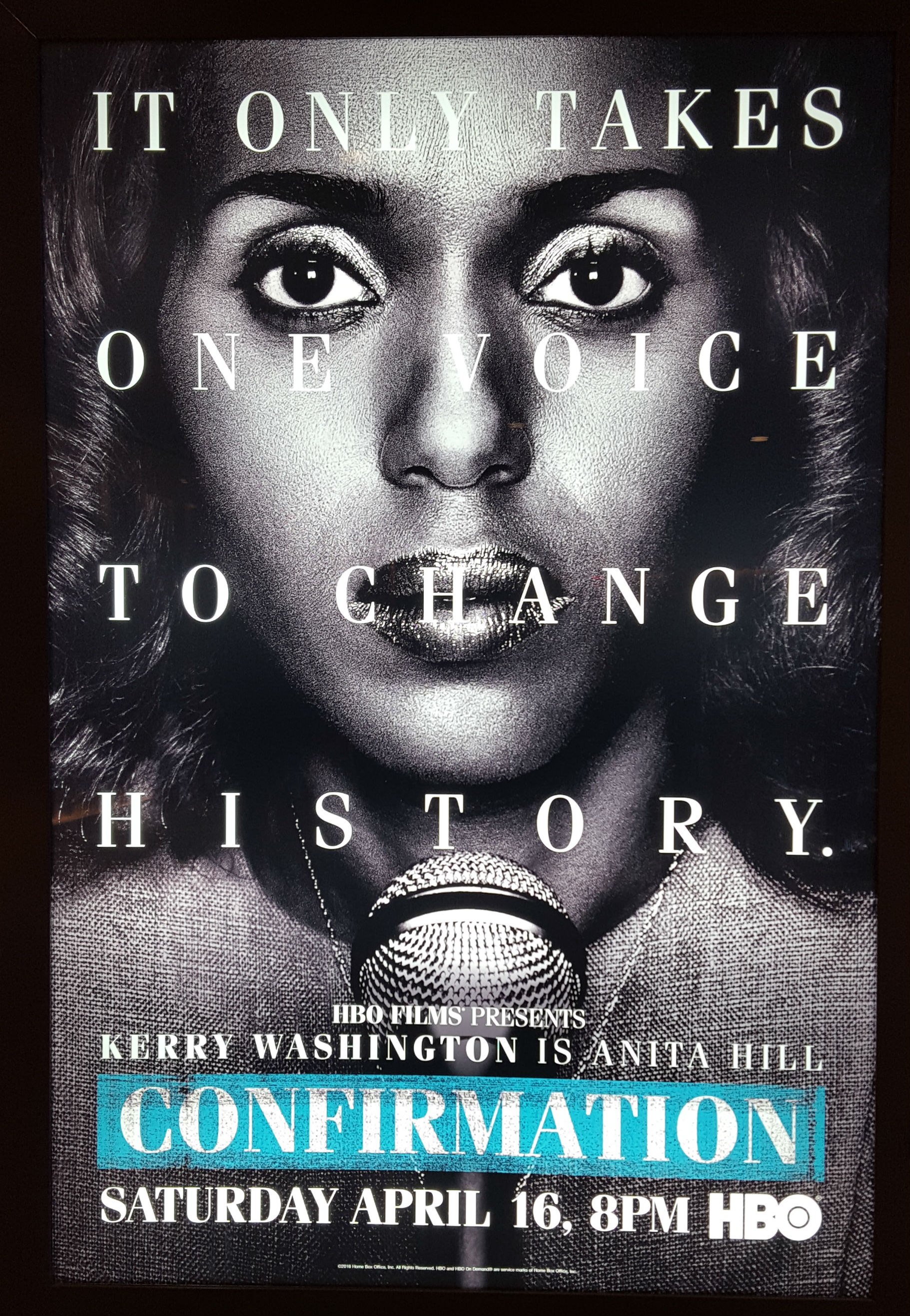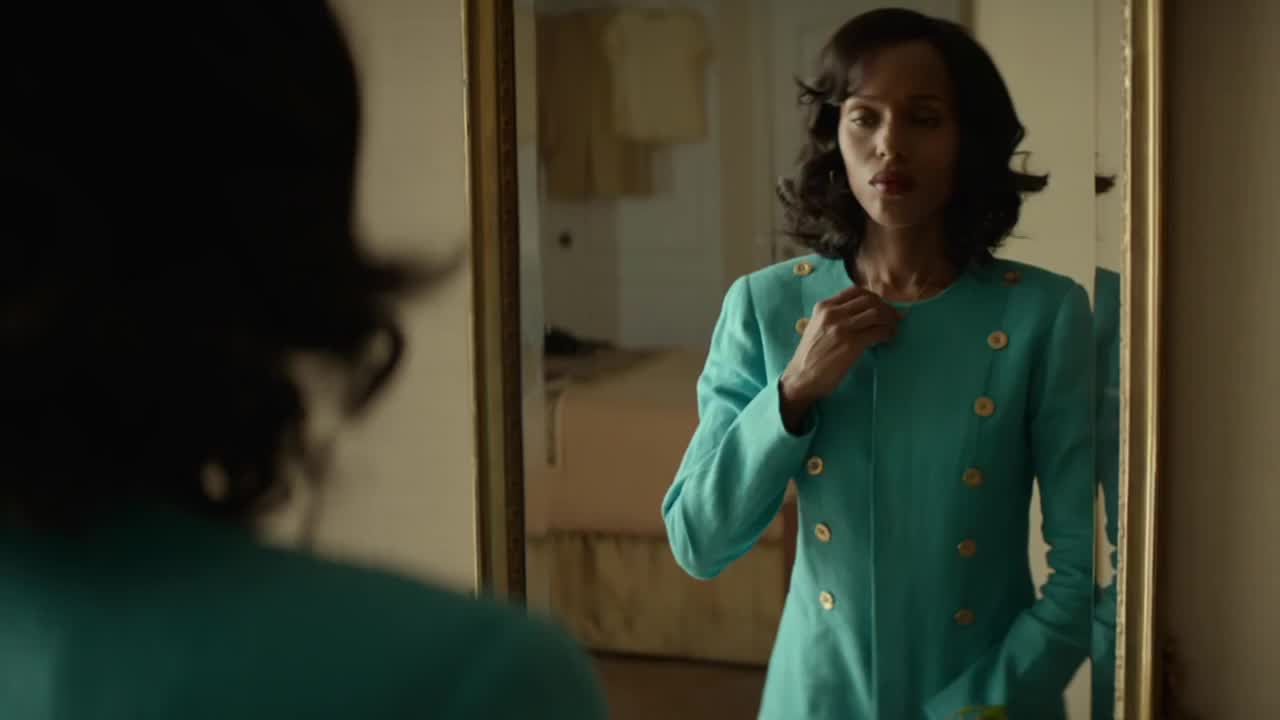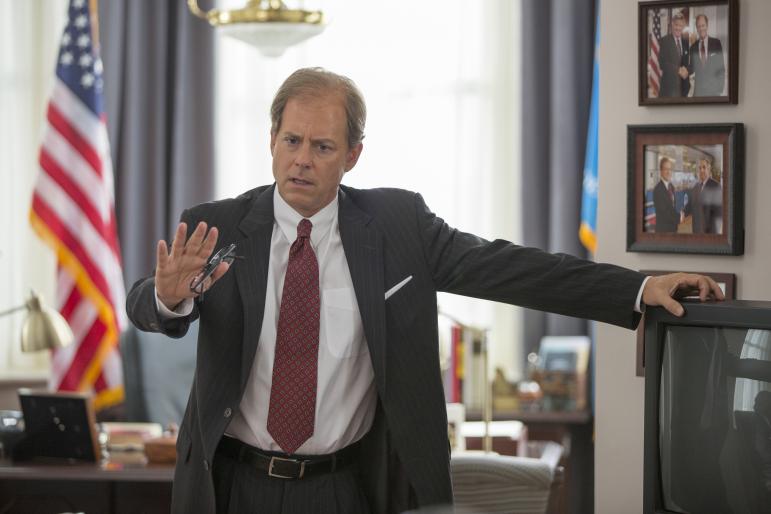 Kieran, here. Politics, even at their most abstract are ultimately personal. At its best moments, HBO's Confirmation directed by Rick Famuyiwa’s (Dope) and written by Susannah Grant (Erin Brockovich) understands this. Anita Hill’s (Kerry Washington) 1991 allegations of sexual harassment against Justice Clarence Thomas (Wendell Pierce) on the eve of his confirmation to the US Supreme court is a subject about which few who can remember are indifferent. Who was lying and about what? What did the Anita Hill’s testimony say about the positions of gender, race and political alignment in this country? These are the kinds of questions that evoke vociferous, often angry opinions and the film doesn’t offer up easy answers.
Kieran, here. Politics, even at their most abstract are ultimately personal. At its best moments, HBO's Confirmation directed by Rick Famuyiwa’s (Dope) and written by Susannah Grant (Erin Brockovich) understands this. Anita Hill’s (Kerry Washington) 1991 allegations of sexual harassment against Justice Clarence Thomas (Wendell Pierce) on the eve of his confirmation to the US Supreme court is a subject about which few who can remember are indifferent. Who was lying and about what? What did the Anita Hill’s testimony say about the positions of gender, race and political alignment in this country? These are the kinds of questions that evoke vociferous, often angry opinions and the film doesn’t offer up easy answers.
The truth of whether Clarence Thomas sexually harassed Anita Hill is secondary. Thomas, as rendered by Pierce in what is actually a small role with few spoken lines, is a beleaguered public figure, forced to defend himself and deal with the consequences these allegations had on his personal and professional life. I say this not to imply that Thomas is innocent (I’ve always thought he was guilty). But, as is often the disgusting and sad truth about men who commit these crimes, they’re not always technically lying when they maintain their innocence under oath. In order for it to truly be a lie, these men would have to believe that they did anything wrong in the first place. Whatever mental gymnastics Clarence Thomas had to go through in order to get to this place, his own words and Pierce’s subtle but precise performance clearly illustrate that Thomas does not believe he was guilty of any wrongdoing. When the film is examining the implications of a culture that allows men to make these leaps and how it turns victims into villains, it shines and Pierce is a key component of what makes this element works. He opts not to turn Thomas into a monster for it’s not the “monsters” who violate women and irrevocably damage lives. They are simply people, a much truer and scarier fact to fathom.
They key role of Anita Hill allows Kerry Washington to be front-and-center in a role other than TVs “Scandal” possibly for the first time since her early indie breakthroughs of Lift and Our Song. Washington, with her knack for portraying inner psychology and turmoil, does not disappoint. In moments that would normally allow for scenery chewing and awards clip actressing, Washington often pulls back. She seems to understand very fully exactly who Anita Hill was—an attorney, meticulous, level-headed and ultimately reluctant. It makes for a performance that while not always flashy or overtly expressive is consistently on-character and built from the inside out. One can only hope that this showcase leads to more opportunities for Washington, hopefully in sturdier and more confident films (more on this later). It should frankly engender shame and regret on behalf of Hollywood that they’ve had this actress in front of their eyes for well over a decade and have grossly misused or underused her talents.

As it is, Confirmation has moments of real brilliance (Washington’s performance and the cross-cutting during the scene where Hill is giving her detailed and painful testimony is handled well stylistically) that are hampered down by moments where Famuyiwa’s direction becomes flat and rather toothless. Not that it’s on every film, especially a film of this nature to make a strong visual directorial statement. But there are sequences that feel wildly under directed. As a result, there are clear tiers of quality within the large ensemble as if Famuyiwa decided which actors he was most interested in directing and jettisoned the rest. Jeffrey Wright, Erika Christensen, Zoe Lister-Jones and Grace Gummer (yes, younger sister to the famous Mamie) all excel in supporting roles and bring interesting shading and texture to their scenes. Even Kimberly Elise, who barely has five minutes of screen time leaps forward (but then, when doesn’t she? Get on that too, Hollywood). Greg Kinnear as Joe Biden is also strong and I’m glad that in this era of pre-mourning the loss of the Obama administration (and I’m right there myself) that the film doesn’t absolve him of accountability for how he threw Anita Hill under the bus. Through this, the film successfully but not obtusely makes the point that mistreatment and dehumanization of Black women in America is not a GOP problem or a Democrat problem—it’s everyone’s problem.

The rest of the cast, I’m not so sure of. The team of men attempting to protect Clarence Thomas (or, more accurately what his confirmation would represent for George H.W. Bush's administration) feels like a bullpen of functionaries. Bill Irwin as John Danforth, usually quite strong as an actor, feels broadly drawn and unexplored in his villainy. I don’t want to pick too hard on Jennifer Hudson, who plays Angela Wright, a potential witness and former employee of Clarence Thomas with accusations of her own. I like Jennifer Hudson as a personality and as maligned as her Oscar win is in certain circles, I maintain that the tone of her Dreamgirls performance (even when not singing) actually suited the film well. That being said, I remain unconvinced about her as a dramatic actress. The line readings always feel a hair off—too earnest, too pronounced, not emotionally honest in terms of their response to a scene partner. A huge part of acting is reacting and she seems to stride into scenes, bursting with undeniable charisma, but already knowing how she's going to perform. It’s a small role, but an important one that I wish had been cast more attentively.

The significance of the timing of Confirmation, as we have a vacancy on the Supreme Court and a Congress fractured by petty obstructionism cannot be denied. It’s an important film, thematically and speaks to many ideas of race, gender and intersectionality that are too rarely and too disingenuously discussed in this country. I just wish all of these things had been met with a cinematic statement as powerful as its material.
Grade: B-
